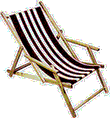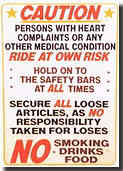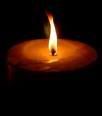Tuesday, April 12, 2005
Drawing from history
My Dad would be amused that I'm using Andrew J. Russell & Matthew Brady Civil War photos as sources for drawings in art class, & a few of these will actually be exhibited at Kean University next month. I drew from exercises in basic instruction books, then some simple still life arrangements. Tiring of that, I went to a book of Great Lakes lighthouses with nice color photos. But I just wasn't "seeing" like I see though a camera lense, & my experiments at outdoor sketching weren't helping (& it was cold).  I wasn't giving the art teacher enough to help me with. I started using old Civil War photos, mostly simple views of rivers with bridges, with a few trees & bushes & a far shoreline, with wonderful washed out tones in contrasts & perspectives that I could grasp. I sketch them out quickly with a hard pencil & spend the rest of the class time figuring out what's happening in them. The teacher is always leaning on me to use greater contrast; I'm loose enough with the pencil but too cautious when it's time for the 8B softy. I'm getting the hang of it, & soon I'll incorporate charcoals; I like the roughness & smudging. My most recent outdoor sketching attempt was definitely an improvement. My main goal is to sharpen my visual senses; good for photos & poems.
I wasn't giving the art teacher enough to help me with. I started using old Civil War photos, mostly simple views of rivers with bridges, with a few trees & bushes & a far shoreline, with wonderful washed out tones in contrasts & perspectives that I could grasp. I sketch them out quickly with a hard pencil & spend the rest of the class time figuring out what's happening in them. The teacher is always leaning on me to use greater contrast; I'm loose enough with the pencil but too cautious when it's time for the 8B softy. I'm getting the hang of it, & soon I'll incorporate charcoals; I like the roughness & smudging. My most recent outdoor sketching attempt was definitely an improvement. My main goal is to sharpen my visual senses; good for photos & poems.
Dad's occasional art was far more precise - he had an engineering background & not much patience for fine art or observing nature - he designed things, & he did one nice pen & watercolor of a Civil War soldier with authentic uniform & equipment - not too good with the face though - that he liked enough to frame & hang in his home office. Later, he switched to the Revolutionary period & became a re-enactor, with costume & working cannon. His approach to history didn't get much attention from me when he was alive (except the cannon), but I was coming at it from another direction, through literature & what used to be "alternative" or parallel histories of the United States: African-American, human rights, & cultural, rather than economics (which talked more of cotton than chattel slavery) & the battlefield. The latter was Dad's thing. I did always appreciate the old photos; stark portraits of the death, destruction, & ruined beauty that a generation long dead experienced. "The real war," Walt Whitman correctly observed, "will never get in the books." But there is no war in my drawings. No battlements, no people. Only rivers flowing beneath bridges that no longer exist.
"If a nation expects to be ignorant and free, in a state of civilization, it expects what never was and never will be." Thomas Jefferson
 I wasn't giving the art teacher enough to help me with. I started using old Civil War photos, mostly simple views of rivers with bridges, with a few trees & bushes & a far shoreline, with wonderful washed out tones in contrasts & perspectives that I could grasp. I sketch them out quickly with a hard pencil & spend the rest of the class time figuring out what's happening in them. The teacher is always leaning on me to use greater contrast; I'm loose enough with the pencil but too cautious when it's time for the 8B softy. I'm getting the hang of it, & soon I'll incorporate charcoals; I like the roughness & smudging. My most recent outdoor sketching attempt was definitely an improvement. My main goal is to sharpen my visual senses; good for photos & poems.
I wasn't giving the art teacher enough to help me with. I started using old Civil War photos, mostly simple views of rivers with bridges, with a few trees & bushes & a far shoreline, with wonderful washed out tones in contrasts & perspectives that I could grasp. I sketch them out quickly with a hard pencil & spend the rest of the class time figuring out what's happening in them. The teacher is always leaning on me to use greater contrast; I'm loose enough with the pencil but too cautious when it's time for the 8B softy. I'm getting the hang of it, & soon I'll incorporate charcoals; I like the roughness & smudging. My most recent outdoor sketching attempt was definitely an improvement. My main goal is to sharpen my visual senses; good for photos & poems.Dad's occasional art was far more precise - he had an engineering background & not much patience for fine art or observing nature - he designed things, & he did one nice pen & watercolor of a Civil War soldier with authentic uniform & equipment - not too good with the face though - that he liked enough to frame & hang in his home office. Later, he switched to the Revolutionary period & became a re-enactor, with costume & working cannon. His approach to history didn't get much attention from me when he was alive (except the cannon), but I was coming at it from another direction, through literature & what used to be "alternative" or parallel histories of the United States: African-American, human rights, & cultural, rather than economics (which talked more of cotton than chattel slavery) & the battlefield. The latter was Dad's thing. I did always appreciate the old photos; stark portraits of the death, destruction, & ruined beauty that a generation long dead experienced. "The real war," Walt Whitman correctly observed, "will never get in the books." But there is no war in my drawings. No battlements, no people. Only rivers flowing beneath bridges that no longer exist.














